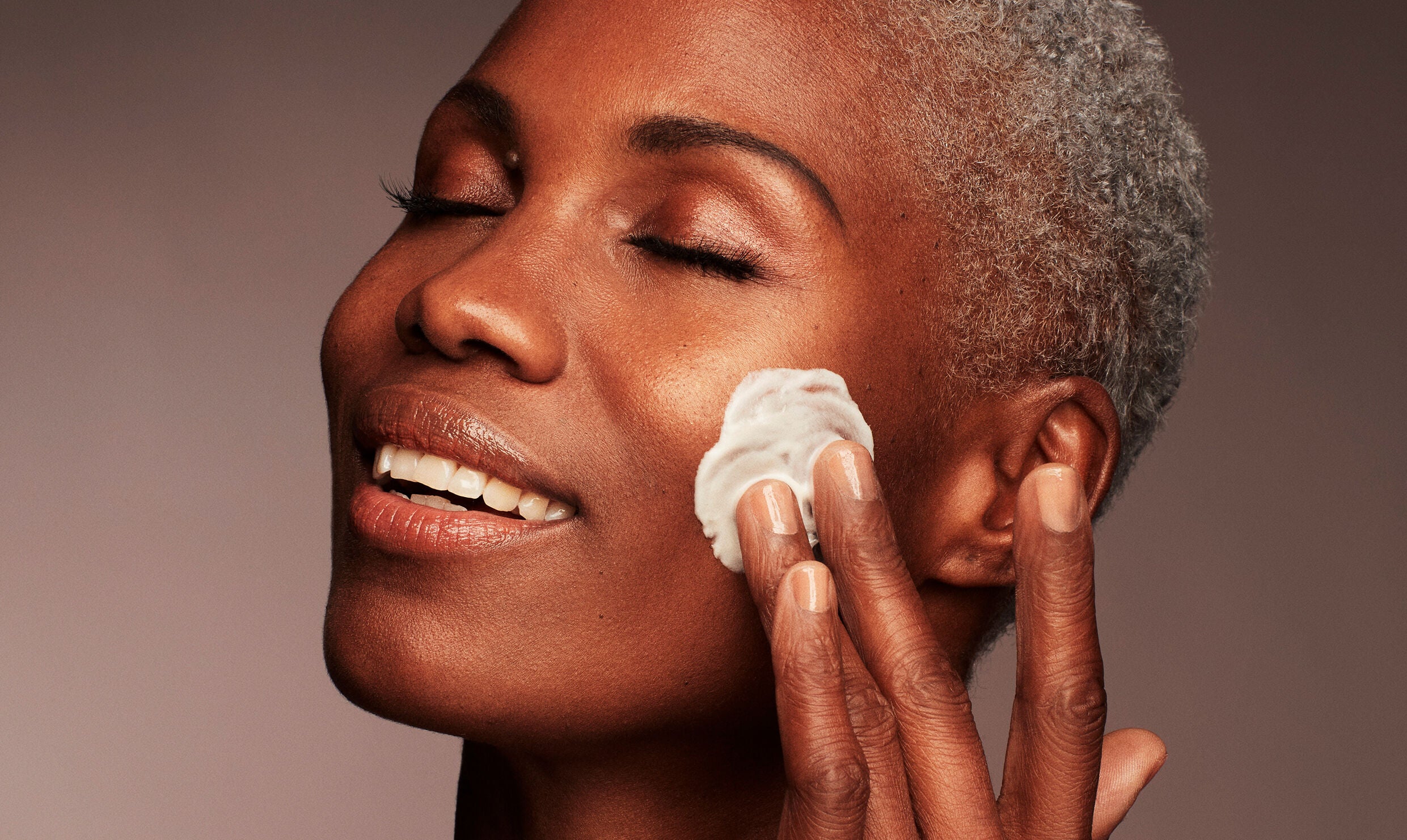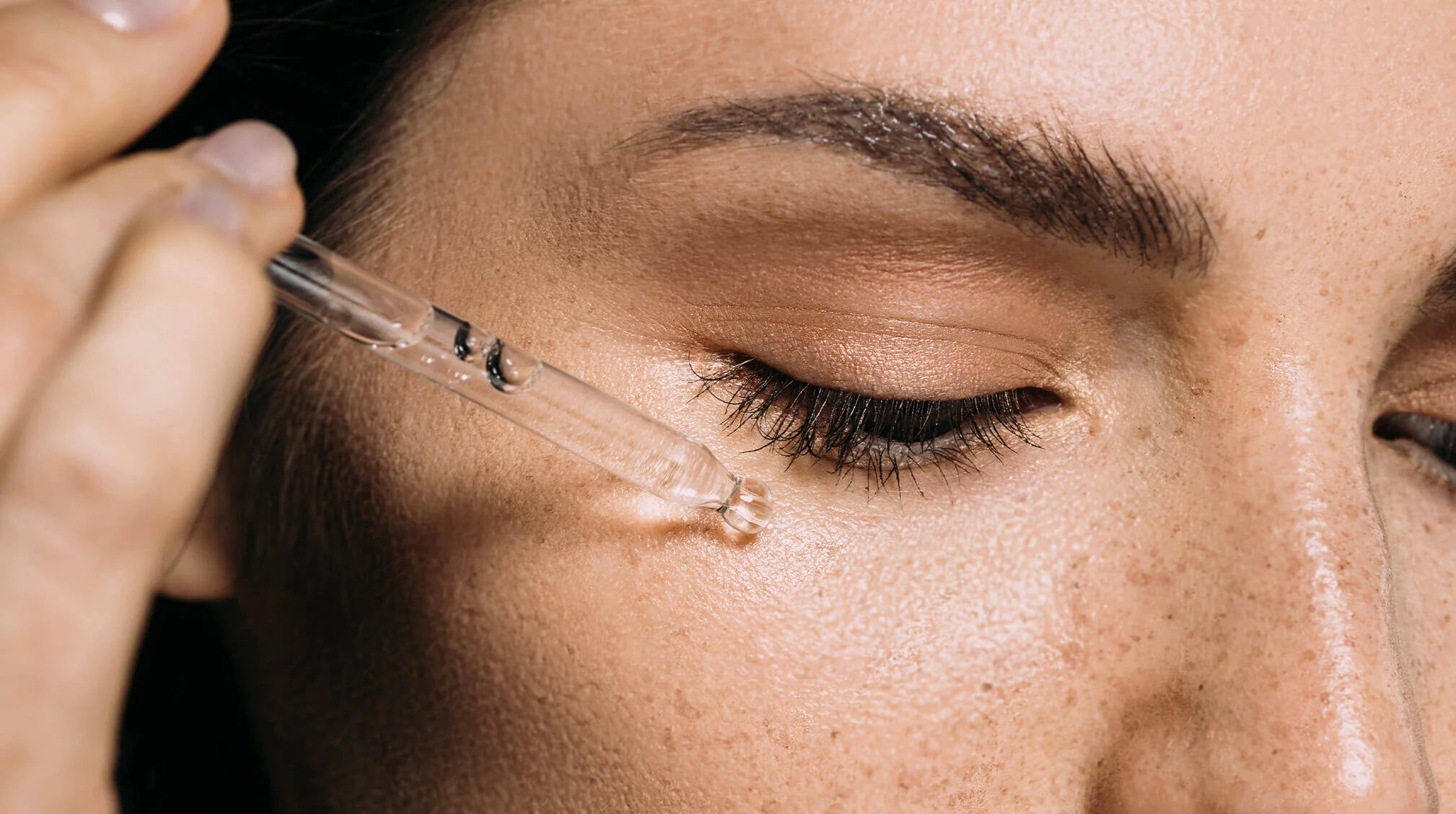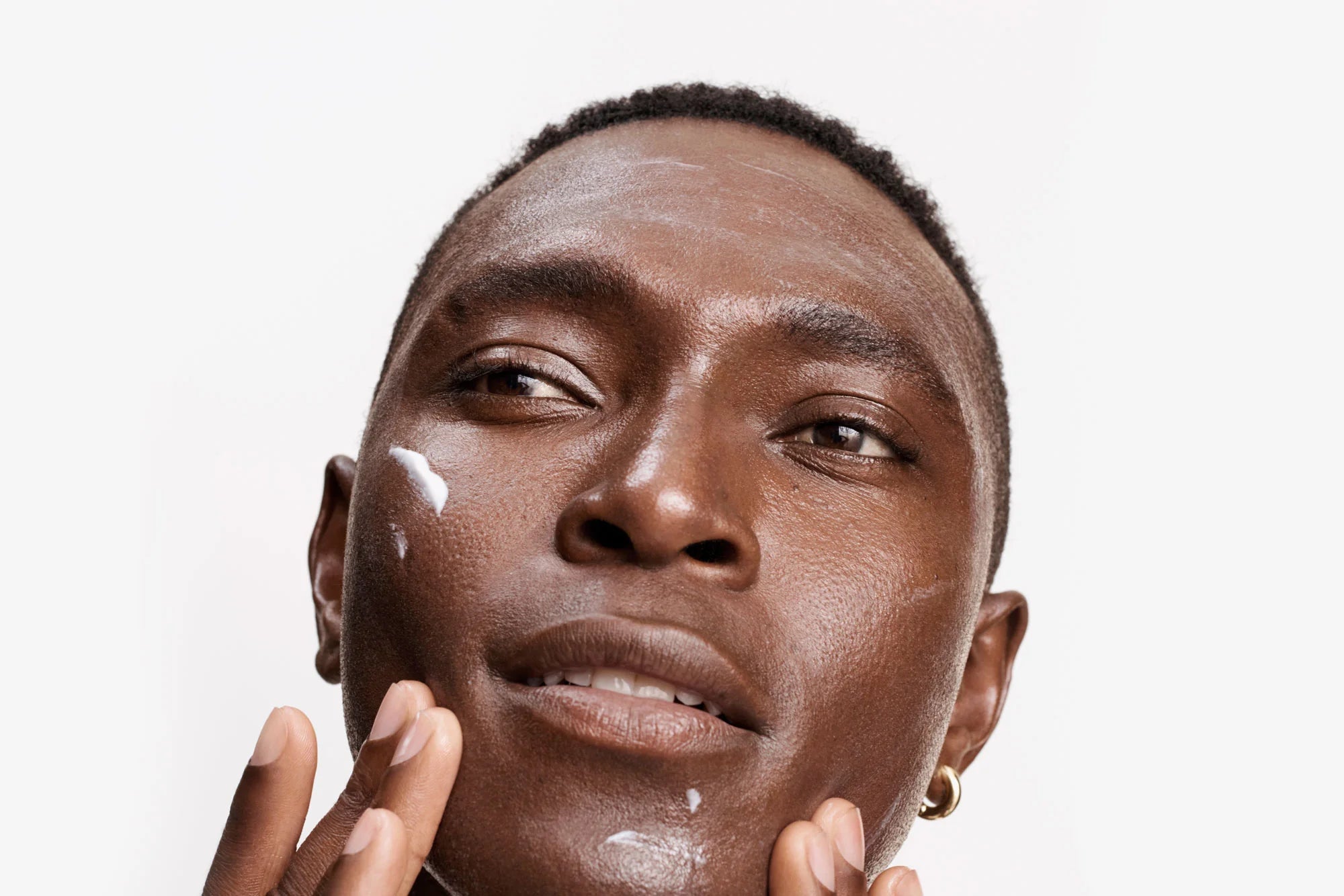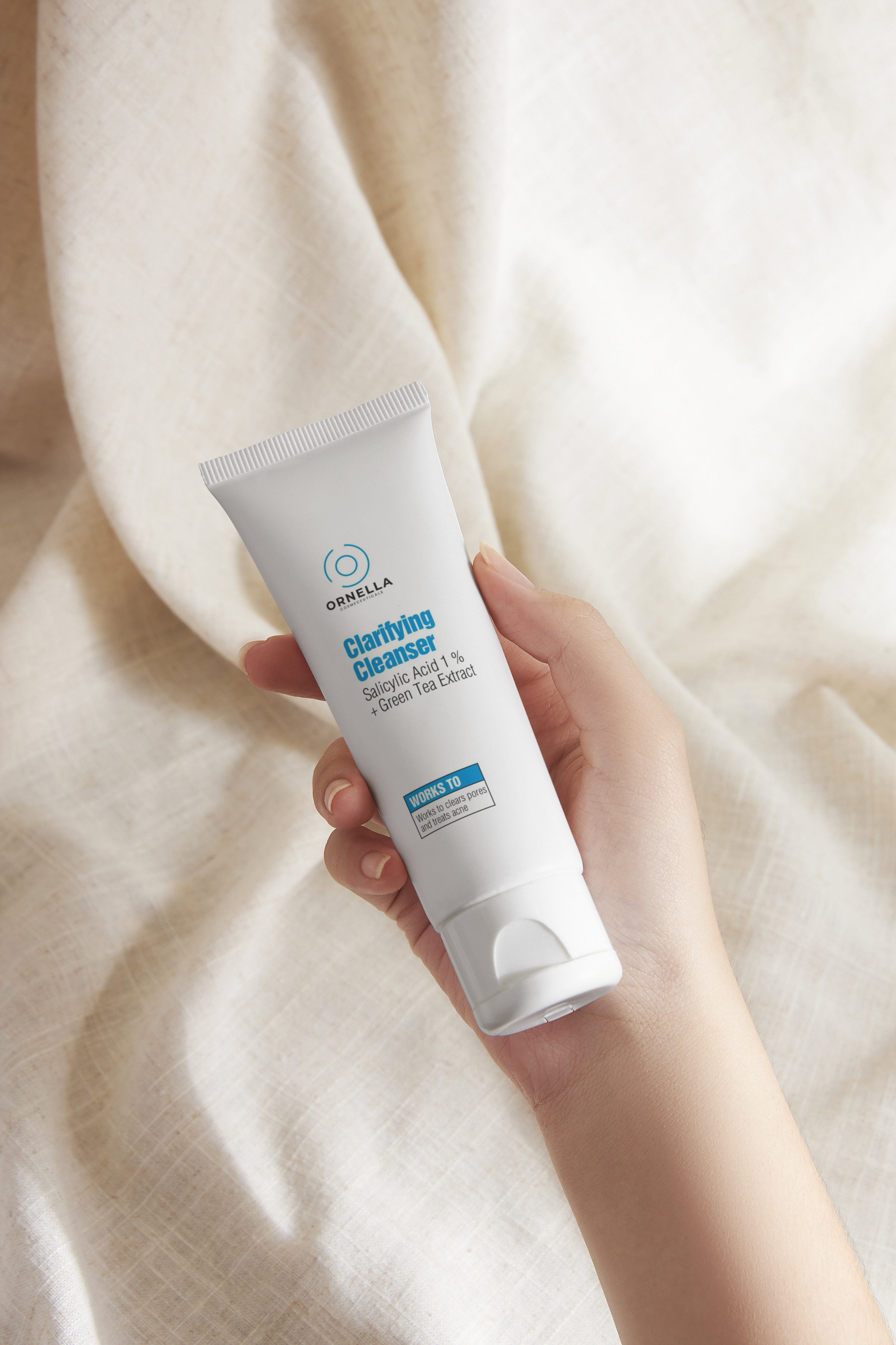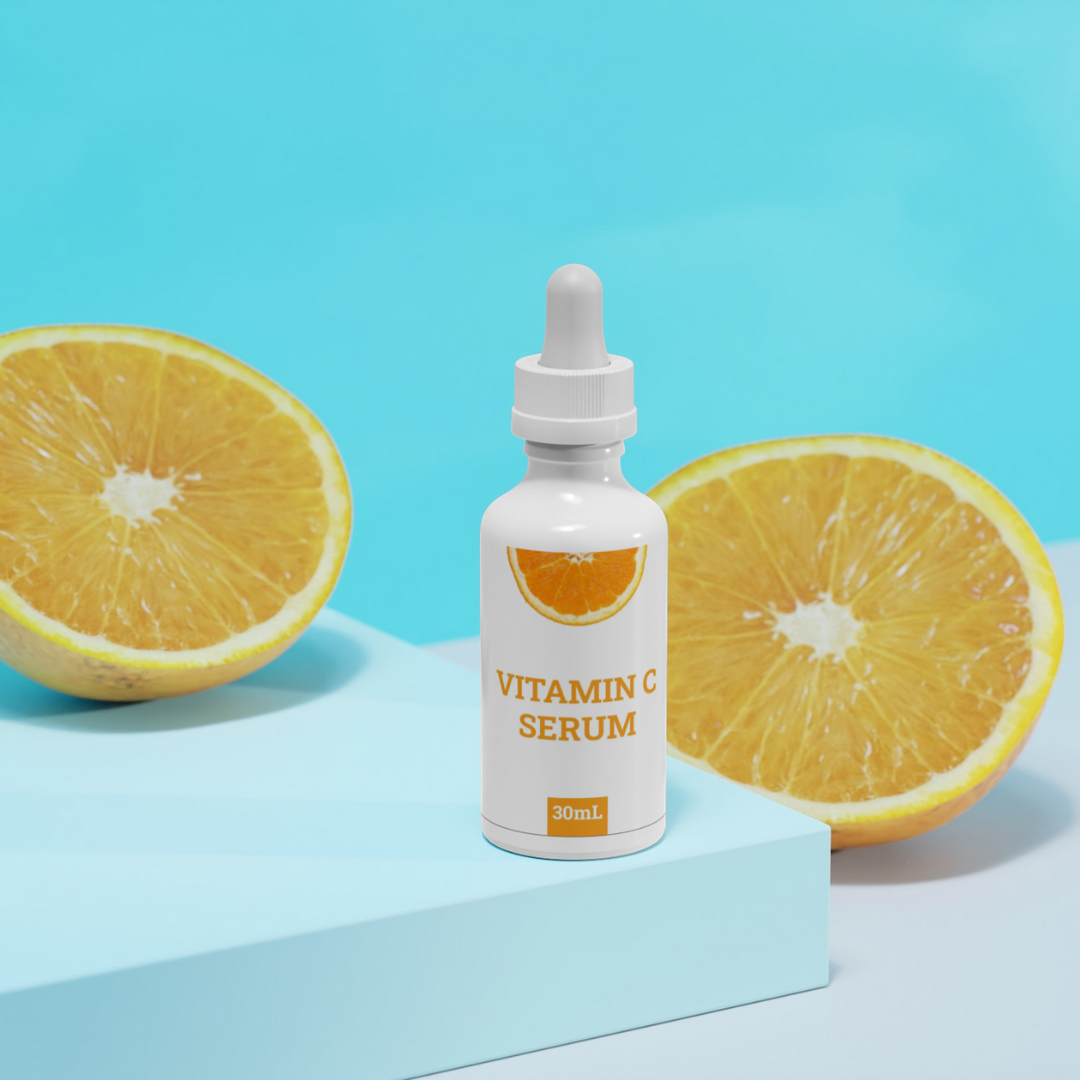
What Are Peptides and What Do They Do for Skin?
What are peptides?
First, we need to start with the science: Peptides are fragments of proteins. On their own, peptides are made up of amino acids. When amino acids are combined in certain formations, they create specific peptides (and there are hundreds of peptides), and when peptides are formed in a certain way, they make specific proteins.
Proteins, like collagen and elastin, are the fundamental building blocks of skin. Without peptides and proteins, skin doesn’t remain intact. The result is loss of firmness, the appearance of wrinkles, textural changes and skin that doesn’t bounce back as it once did.
What’s so fascinating about peptides is that abundant research has clearly shown that each of them works in very specific ways to target an exact skin care need. They also teach skin to do what's required to help revitalize these building blocks, helping to revive aging skin.

What are the benefits of peptides in skin care?
Promising new research about using peptides in skin care products has us excited because it expands on the already impressive anti-aging, barrier-supporting and hydrating feats of this diverse group of ingredients. Now, there are even more intriguing reasons to consider peptides as a significant part of a skin care formula. “Having more options for skin care is great as some people will find their skin responds better to certain ingredients, while others benefit from combining several products,” says board-certified dermatologists.
Although there are hundreds of peptides, they all have this in common: they demonstrate skin-restoring abilities when formulated with care and attention. Skin-restoring ingredients work best to help skin appear younger by nourishing and helping to revitalize both its moisture and antimicrobial barrier, also known as skin’s microbiome.
What are peptides in skin care products?
Because of the sheer number of peptides and their often-long names, it can be more challenging to identify them on an ingredient list. Don’t fret, we’re sharing with you an easy way to know if the ingredient you’re assessing is a peptide or not.
A telltale sign you’re looking at a peptide is if the ingredient name ends in ‘peptide’ or begins with ‘palmitoyl.’ It’s also common to see numbers following a peptide’s name. These rules don’t apply to every single peptide name, but they sure are handy.
To get familiar with some of the most common peptides and their names, we’ve put together a list below:
- Tridecapeptide-1, a folded peptide that helps reduce the appearance of fine lines and wrinkles.
- Palmitoyl Dipeptide-10, a synthetic peptide with skin conditioning and anti-aging benefits.
- Sh-polypeptide-121, a vegan, collagen identical peptide that exhibits soothing properties.
- Palmitoyl Tripeptide-38, AKA MATRIXYL synthe’6, assists in the maintenance of skin’s structure.
- Tetrapeptide-72, supports skin’s architecture.
- Palmitoyl Hexapeptide-12, synthetic peptide that helps boost the barrier and skin’s firmness.
- Tripeptide-5, helps skin appear plumper and more youthful.
Although their names may sound or look intimidating, once you know what to look for, peptides are easy to identify on any ingredient list. An exception? Some ingredients don’t “read” as peptides on a skin care product ingredient list but chemically speaking, they’re peptides. Common examples include glutathione, carnosine and silk protein.

How to choose peptide skin care products
Finding a product that combines the power of peptides with protective packaging and a mix of great supporting ingredients might prove tricky, but we’re about to help you solve this skin mystery.
First off, peptides are best when formulated in leave-on products like serums. The length of exposure to skin that leave-on products allow make them the best way for peptides to deliver their unique range of benefits. Look for peptides in moisturizers, serums, boosters, eye creams, sunscreens and other skin concern treatments. When peptides are included in rinse-off products, like cleansers, this diverse group of ingredients isn’t given the opportunity to hydrate, replenish or nourish. As quickly as they’re applied, they’re rinsed off.
But this isn’t all! Packaging and formulation are just as important as product type when scouring the digital and physical shelves for a peptide product. Peptides are powerhouses, but much like retinol and vitamin C, they work best when formulated with supporting ingredients, like ceramides and hyaluronic acid. All of this means nothing if the formula is not housed in an airtight, opaque container. Light and air degrade the quality of most peptides, so skip anything kept in clear jars.
Our anti-aging peptide staple, the Pro-Collagen Retinol + Peptide Night Face and Eye Cream offers skin a highly targeted blend of six signaling pro-collagen peptides that work alongside humectants to rebuild, strengthen and firm, leaving skin youthful and nourished.
What can peptides be mixed with?
Peptides can be mixed with any other skin-beneficial ingredients, because as special as peptides are, they need "friends" in the form of supporting ingredients to help address all the needs of skin, as touched on previously.
Any skin care product worthy of your hard-earned dollars must include specialized ingredients such as antioxidants, skin-replenishing ingredients and skin-restoring ingredients (which include peptides). As a reminder (because it’s so important), when peptides are blended with antioxidants, skin-soothing ingredients and skin-replenishing ingredients they can address multiple signs of aging and with consistent use, you’ll love the results! “Using ingredients that work in different ways can maximize the results you see from your skin care regimen,” says American School of Dermatology.
What are the drawbacks and limitations of peptides?
Although peptides can address so many skin concerns, we also want you to know there's a lot of hype around what they can do. Sadly, the hype is often completely blown out of proportion. Peptides can do amazing things for skin, but they do not replace what cosmetic corrective procedures can do, as many companies have claimed over the years.
Also noteworthy: There's no single ingredient solution for all the signs of aging and other skin problems we endure, and peptides are no exception. As with all anti-aging ingredients, the best approach is to use products such as moisturizers and serums that use a cocktail of great ingredients, including antioxidants and skin-restoring substances (plus daily broad-spectrum sunscreen) to visibly improve the health and appearance of your skin.
